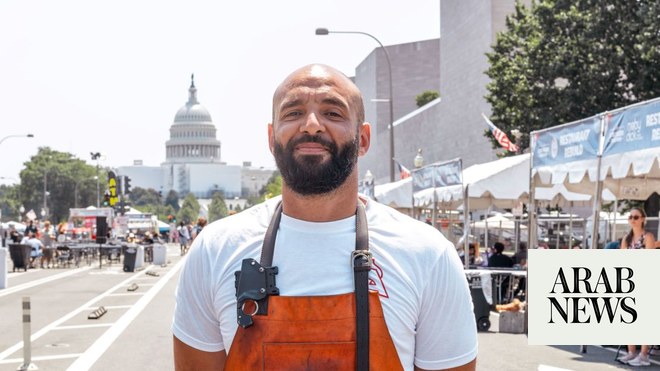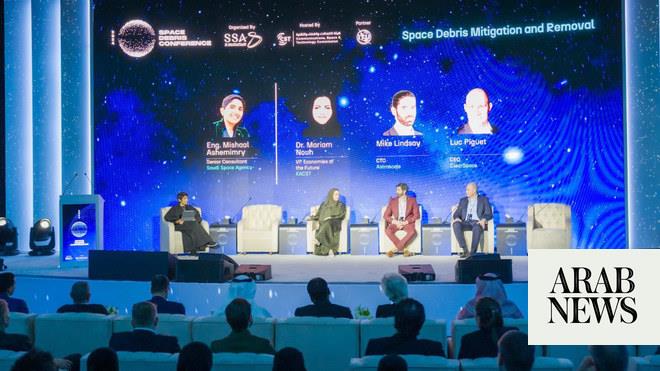
"I owe a lot to Saudi Arabia because it was the first country that gave me the opportunity to be a coach abroad"
Former Brazil boss believes the Green Falcons need to get at least a draw in first World Cup game
After a 35-year coaching career that has included jobs in eight countries, Luiz Felipe Scolari has an eclectic and unmatched trophy cabinet.
He has won the World Cup with Brazil, the Gulf Cup with Kuwait, the Copa Libertadores with Gremio and Palmeiras and the Asian Champions League with Guangzhou Evergrande, not to mention 21 other titles. No other manager has enjoyed such success around the globe at both international and domestic level. And the Brazilian credits much of his career success to Saudi Arabia.
It was in 1984, while Scolari was still wet behind the ears as coach of lowly Brasil de Pelotas in Rio Grande do Sul, that he received an invitation to the Kingdom from his friend and managerial journeyman Rubens Minelli. Minelli had enjoyed spells at the helm of Al-Hilal and the Saudi Arabia national team and had suggested to officials at Riyadh’s Al-Shabab club that there was a former physical education teacher showing managerial promise back in Brazil.
Scolari met the club and was offered the role of head coach, propelling him on a journey that would eventually see him coaching in places as far-flung as Uzbekistan and China.
While his spell in the Saudi Arabian capital lasted little more than two years, he led Al-Shabab to second in the league before going back to Pelotas. He returned to the region in 1989 as coach of Al-Qadisiya and victory in the Kuwait Emir Cup was enough to see him given the responsibility of leading the host nation at the 1990 Gulf Cup in Kuwait. Although he would win it, by the end of the following year he was back in Saudi Arabia as manager of Al-Ahli in Jeddah.
“If I am anybody today as a football coach I owe a lot to Saudi Arabia because it was the first country that gave me the opportunity to be a coach abroad; the first country that gave me a sense of what it’s like to leave Brazil and work outside,” Scolari told Arab News during an exclusive interview on the sidelines of the Bilbao International Football Summit.
“We did a good job at Al-Shabab, then I went back a few years later to Al-Ahli, where we also did a wonderful job. Arab football enjoyed a better phase than it does today because it had great Brazilian coaches and other foreign coaches from all over the world. It was a very big evolution for the game there and I am proud to have been a part of that. For this, I am always grateful and always speak in a very grateful way in regard to my time there.”
It was only after returning to Brazil that Scolari’s career trajectory shot skywards. In three years at Grêmio, he won six titles including the club’s first Brazilian championship in 15 years as well as the 1995 Copa Libertadores. He replicated his success on the continent four years later with Palmeiras and was the obvious candidate to get the best out of Ronaldo, Rivaldo and Ronaldinho as coach of Brazil during their successful World Cup campaign in 2002.
Trying to rekindle an old love is, however, a difficult and risky affair. After spells at Portugal, Chelsea, Bunyodkor and Palmeiras, when Brazil approached Scolari to lead them at the 2014 World Cup — their first tournament on home soil since 1950 — he readily accepted. It would come close to ruining his reputation.
Under immense pressure from an expectant public, Scolari sat in the dugout inside a sold-out Estádio Mineirão watching as his side were humiliated 7-1 by Germany in the semifinals. He called it “the worst day of my life” and worldwide ridicule followed. As well as deep-rooted infrastructural problems in the Brazilian football association, it was widely acknowledged that home advantage had turned negative. With passions running high, players had lost their composure.
Scolari is characteristically bullish whenever the subject is brought up — which it always is. “You journalists,” he said, shaking his head. “How many times have Brazil reached the World Cup semifinals since 2002? Only once, just that one time.
“In my career, I had 95 percent good things and 5 percent bad things. I prefer to look at the good things, but a lot of people prefer to look at the bad. My life continued after 7-1, but for a lot of people it stopped with that game.”
As coach of the host nation at the previous World Cup, Scolari is well positioned to comment on what awaits Russia this summer. The hosts of the 2018 event will kick it off on June 14 against Saudi Arabia. Unlike in 2014 when Brazil were ranked third in the world and played against a Croatia side filled with players from Europe’s top leagues, Russia are the second-lowest ranked team at this year’s competition at No. 66 — four places above Saudi Arabia at No. 70. Neither team has what can be regarded as a star player.
“It’s the opening match and everyone expects Russia to be organized and wonderful on the pitch, but often that does not happen,” said Scolari, whose Brazil side went a goal behind to Croatia before recovering to win 3-1.
“The most important match of the group stage is the first game and the tension will be massive. If Saudi Arabia know how to work this situation well, they can complicate things a lot for the hosts.
“The pressure is much greater for Russia because the home fans expect the national team to play very well, so they are going to try to pressure their opponents from the start to try and get their fans on their feet. Saudi though, will be in a position to control the game.”
Scolari said he has watched the Green Falcons occasionally in the past few months and believes them capable of “withstanding Russian pressure,” although if Juan Antonio Pizzi’s side are to qualify to the knockout stage, he added, they must avoid defeat in Moscow.
“For me, in this group, the strongest to qualify are Uruguay and then Russia, for being the host country,” he said, leaning back in his seat.
“If Saudi Arabia can get through that first game with at least a draw, they can approach the second game against Uruguay knowing no matter what happens they will be alive until the final round. Then when they reach that third match against Egypt, you’re looking at an Arab ‘clásico’ so anything can happen.
“Saudi can get a good result, but it will be difficult. To qualify for the second phase of a World Cup, you have to play for every point. For example, at Euro 2016, Portugal qualified with three draws, so at a World Cup sometimes the small details can decide a place in the last 16.”
Scolari, meanwhile, will be watching from afar, pondering his next step after three successful seasons in China in which he won seven titles in three seasons with Guangzhou Evergrande, including the AFC Champions League.
Unsurprisingly, he has offers. And for a man who revealed in 2008 that he was accepting a lucrative offer from Chelsea because “I don’t want to work as a coach until I’m 70,” he gives no hint of calling it a day quite yet.
“I have open doors in many places,” said Scolari, 69.
“United Arab Emirates, China … I even had a proposal to train a team in the English Championship. I do not mind training a team in a second division, so long as the project is good. I just want a good project next.”
Polishing his considerable silverware will likely not suffice.












